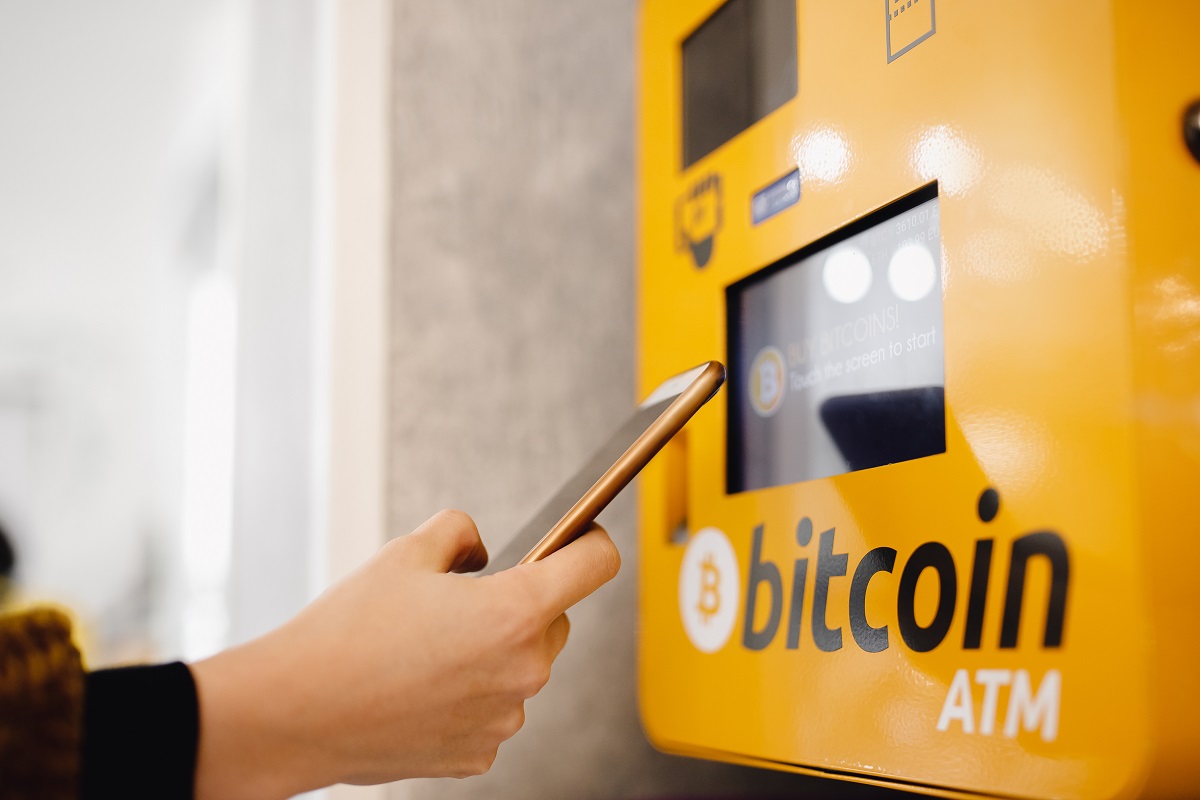The Significance of Bitcoin ATM Day
May 2nd marks a special occasion in the world of cryptocurrency – Bitcoin ATM Day. This day commemorates the installation of the first-ever Bitcoin ATM in a Vancouver coffee shop back in 2013. Since then, the crypto kiosk industry has experienced remarkable growth and evolution, making it easier than ever for people to access digital currencies.
Bitcoin ATM Day serves as a reminder of the innovative spirit that drives the cryptocurrency community. The introduction of the first Bitcoin ATM was a groundbreaking moment, demonstrating the potential for digital currencies to be accessible to the masses. By providing a tangible, user-friendly interface for buying and selling Bitcoin, these machines bridged the gap between the digital and physical worlds, making cryptocurrency more approachable for the average person.
Over the years, Bitcoin ATMs have become an essential part of the cryptocurrency ecosystem. They offer a convenient and fast way for people to acquire or sell digital assets without the need for a bank account or technical expertise. The growth of the crypto kiosk industry has been nothing short of impressive, with the number of machines increasing from just one in 2013 to thousands worldwide today. This expansion has played a significant role in driving cryptocurrency adoption and has opened up new opportunities for businesses and individuals alike.
The State of Bitcoin ATM Regulations in 2023-2024
The year 2023 saw a surge in state-level legislation targeting Bitcoin ATM operators. Several states, including California and Connecticut, passed bills with prescriptive requirements for crypto kiosks, creating a blueprint for other states to follow. This trend continues into 2024, with Illinois, Rhode Island, and Minnesota considering similar legislation.
The passage of legislation in California and Connecticut marked a significant milestone in the regulation of Bitcoin ATMs. These states introduced specific requirements for operators, including mandatory licensing, transaction limits, fee caps, and various consumer protection measures. The bills aimed to address consumer protection and help thwart scams and fraudulent activities affected by unsuspecting victims via kiosks.
Interestingly, a political divide has emerged between red and blue states in their approach to crypto legislation. Blue states tend to introduce more stringent prescriptive measures, including specific mandatory disclosures and transaction caps. For example, some blue states have passed or proposed legislation that limits the amount of cryptocurrency that a customer can buy or sell through Bitcoin ATMs in a single day.
On the other hand, red states have taken a more hands-off approach, leaning towards anti-CBDC legislation and bills favoring crypto miners. These states aim to create a more welcoming environment for the cryptocurrency industry, attracting businesses and fostering innovation. Some red states have even proposed tax incentives or subsidies to encourage the growth of crypto-mining operations within their borders.
 California’s Digital Financial Assets Law (DFAL)
California’s Digital Financial Assets Law (DFAL)
California’s Digital Financial Assets Law (DFAL) stands out as a prime example of recent state-level crypto legislation. DFAL is the combination of two legislative bills: Assembly Bill 39 (AB 39) and Senate Bill 401 (SB 401). AB 39 focuses on regulating crypto exchanges and other cryptocurrency businesses, establishing a licensing regime, and setting forth various compliance requirements. This bill aims to provide oversight and protect consumers engaging with crypto exchanges operating in the state. (Uniquely, it also addresses the oversight of stablecoins and related activities.)
SB 401, on the other hand, specifically targets Bitcoin ATM operators. The bill outlines a range of requirements for crypto kiosks, including mandatory disclosure of kiosk locations, specific pieces of information to be included on the customer’s transaction receipt, and both fee and daily customer transaction caps. Importantly, in addition to the specific and targeted requirements in SB 401, kiosk operators must also obtain a license under AB 39.
Concerns have been raised about California’s ability to implement and oversee the licensing process effectively at such a massive scale. (California’s is the world’s 4th largest economy.) Add to this, the state is currently facing significant budget constraints that could impact the resources available to the DFPI, which will need to build a licensing framework essentially from scratch. This raises many potential issues in terms of staffing to review applications and vet applicants, as well as the development of necessary infrastructure to support oversight and enforcement of regulations under both AB 39 and SB 401.
Despite these concerns, California’s DFAL represents a significant step forward in the regulation of cryptocurrency businesses and Bitcoin ATMs.
The Continued Growth of Bitcoin ATMs
Despite the evolving regulatory landscape, the Bitcoin ATM industry continues to thrive. In January 2024, Bitcoin Depot announced plans to deploy 940 Bitcoin ATMs across 24 states, highlighting the ongoing demand for accessible crypto services.
As Brandon Mintz, CEO of Bitcoin Depot, stated, “We are happy to be embarking on a long-term strategic partnership with one of our largest retail partners to-date. Together, we look forward to broadening our reach in tandem with a brand that values our commitment to providing access to Bitcoin.”
Navigating Compliance in the Bitcoin ATM Ocean
As the crypto kiosk industry grows, compliance remains a top priority. Modern Bitcoin ATMs now incorporate robust security measures and compliance features, such as OFAC SDN list screening, phone number verification, and high-resolution customer identification capture.
For businesses operating in this space, staying informed about the latest regulatory developments and prioritizing compliance best practices is essential. Collaborating with experienced compliance partners like BitAML can help navigate the complexities of the evolving regulatory landscape.
Embracing the Future of Bitcoin ATMs
Bitcoin ATM Day serves as a reminder of the remarkable progress made in the crypto kiosk industry over the past decade. As regulations continue to evolve and vary across states, the industry must adapt and prioritize compliance to ensure a safe and accessible environment for cryptocurrency adoption.
And, as the regulatory landscape for Bitcoin ATMs becomes increasingly complex, the importance of having a reliable compliance partner cannot be overstated. BitAML is here to help you navigate the intricacies of state-level regulations and evolving compliance requirements, offering cutting-edge insights and services tailored to the unique challenges of crypto kiosk operators. Secure with a free consultation from BitAML today, and stay ahead of the curve in this rapidly evolving industry.


